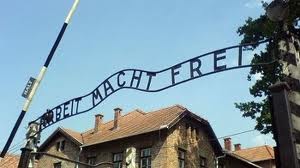The
Gas Chamber of Sherlock Holmes
And Other Writings on
the Holocaust, Revisionism, and Historical
Understanding
By Samuel Crowell
Nine-Banded Books, 2011, 370 pp.
Review by Michael K. Smith
www.legalienate.blogspot.com
Reading Samuel Crowell's, "The Gas Chamber of Sherlock
Holmes" is a little like stumbling across a rational
mind in an insane asylum years after being taken hostage
by the inmates. Following prolonged immersion in
clashing dogmas, the dispassionate use of evidence and
logic to arrive at a sensible conclusion comes as a
jolting but thoroughly pleasant surprise. And Crowell's
modesty in stating that conclusion tentatively, knowing
that genuinely rational inquiry will and should be
superseded by later efforts, is an equally refreshing
departure from polemical norms.
Drawing on establishment and revisionist
authors, along with a careful scrutiny of German source
documents, Crowell deftly evaluates contending claims
arguing that Nazi "gas chambers" were (1) weapons of
extermination (2) disinfection chambers (3) bomb
shelters designed to protect against aerial gas attacks.
Aligning eyewitness testimony with the material and
documentary record, he sketches out the basis for a
rational opinion, putting readers in a position to make
their own judgments, without first requiring that they
join in partisan warfare. Thanks to this effort we no
longer need choose between delusional orthodoxy and
strident dissidence, but can simply weigh evidence. This
should come as a relief to everyone, while hopefully
expanding the number of readers who can move beyond
ritual denunciation and actually take the gas chamber
debate seriously.
Crowell's work contains not a trace of anti-Semitism. He
makes no attempt to whitewash Nazi racial policy, which
he characterizes as a "shameful and disgraceful chapter
in German history," even if "we assumed
revisionist theses to their maximum extent." The
important consideration, he notes, is that "we would
still be dealing with about a million dead European
Jews, who died as a direct result of Nazi persecution,
plunder, forced labor, deportation, and yes, mass
killing." As for his personal beliefs, he says, "they
remain what they have been for thirty years or more,"
that "there certainly was a Holocaust in the sense that
Nazi Germany persecuted and massacred many Jews," with
the likelihood "that this massacre ran into the
millions." Philosemitic crusaders, please take note.
A self-declared "moderate revisionist" who clearly
values the standards of rational investigation, Crowell
avoids exaggeration, misrepresentation, and
self-righteousness. He shows no reluctance to admit when
a conclusion is debatable or when the evidence is open
to varying interpretations; and he is able to perceive
shortcomings in the views and tactics of those who share
a revisionist stance - and even some merit in those who
do not. This adds credibility to his analysis, and marks
him as a rare breed of intellectual who actually does
what he is supposed to do: face up to facts and
plausibly explain them. It is truly sad that on such an
important topic his open-mindedness is all but unique.
Alarmed by the banning of revisionist thought in Europe,
Crowell originally took up Holocaust research in order
to rescue intellectual freedom from the Holocaust witch
hunts of the 1990s, ironically doing so under an assumed
name (he fears for the safety of his family). He
correctly points out that the censorship crusade against
revisionism represents nothing other than "the
censorship of historical investigation itself," and
notes with considerable relief that it appears to be
losing steam. After years of beatings, fire-bombings,
heresy trials, and book shreddings, designed to suppress
what is openly regarded as a species of historical
blasphemy, one can only hope and pray that this judgment
is correct.
Due to a lack of corroborating physical and documentary
evidence, Crowell is skeptical of the mass homicidal
gassing thesis, classifying it as a "conspiracy theory,"
which he defines as "a small group of people operating,
as it were, invisibly, causing things to happen and
covering the traces of their activity." He finds this an
implausible line of thought, because "there is no
material evidence to support the theory," i.e., no forensic evidence of
homicidal gas chambers. Such an argument "demands the
belief in unseen or invisible agency, which is able to
accomplish its work without leaving behind clear
material traces of its misdeeds." Crowell finds people
who take such ideas seriously reminiscent of "those
millenia of humans who attributed terrible events to
demons, devils, or other invisible supernatural beings."
Crowell's analysis is particularly apt in critiquing the
"convergence of evidence" model borrowed from
evolutionary biology, in which multiple strands of facts
allegedly "converge" on a conclusion. But as Crowell
notes, "no competent historian works that way." For if
historians have corroborating documentary evidence for a
conclusion from a high-level document, they look for
further substantiation from mid and low-level documents
in order to avoid an argument with anomalous gaps. On
the other hand, if they have merely eyewitness
confirmation or a vague corroboratory reference, they
search for higher level evidence before drawing hard and
fast conclusions. The difference between this approach
and conventional Holocaust historiography is striking.
As Crowell notes: "The absence of evidence for gassing
in a continuous hierarchy is a serious problem, just as
an evolutionary biologist would be dumbfounded if he or
she found entire geological strata in which there was no
evidence of life at all. That is the proper analogy for
the magnitude of the problem faced here."
Equally helpful is Crowell's excavation of the
devastating impact of the Nuremberg Trials on subsequent
Holocaust research. What scholars have been able to
access about the Holocaust are a selection of documents
from the German archives that were gathered and used for
the express purpose of convicting the Nazi leadership in
the first five years after World War II ended. Later the
judgment of the International Military Court was
declared unchallengeable, and criminal penalties were
applied to those who publicly questioned the court's
findings. This means that the same documents, along with
a prosecutorial interpretation of those documents, have
remained fixed for over sixty years. As Crowell notes:
"This never happens in normal historiography."
The strength of Crowell's book is also its weakness. He
stays riveted on "gas chambers," refusing to be drawn
into broader issues or concerns. He explicitly rejects
the notion that revisionist theses on the Holocaust
carry with them implications for Israel, whose problems,
he says "have nothing to do with an aggressive
recounting of the suffering of the Jewish people in
World War Two."
But this observation entirely misses the point. For the
so-called "mother question" in the Middle East has never
been how to solve Israel's problems, but rather, how to
deal with the impossible problems created by Israel.
And central to those problems is the political capital
the Jewish state has made out of what Crowell calls the
Canonical Holocaust. Indeed, it is unlikely that a
Jewish state could ever have been founded on Palestinian
Arab lands, much less won license to commit permanent
ethnic cleansing against them, had it not been for
widespread belief in the extermination of European Jewry
in gas chambers and cremation ovens, a uniquely horrible
destiny, if true. But if that story is fatally flawed,
as Crowell's careful research suggests it is, then world
leaders' ritual deference to a presumed unique Jewish
victimhood (especially on the part of U.S. leaders) may
very well prove impossible to sustain, as may the
justification for maintaining Israel as an exclusively
Jewish state. And if U.S. support on these scores ever
wavers, it is difficult to see how Israel will be able
to stave off the radical transformation it will have to
undergo in order to remain part of the Middle East.
Whether it continues to exist in name or not, it will no
longer be the state the world is familiar with.
|


